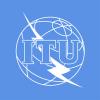-
Over 600 million people worldwide—approximately 31% of all Internet users—live in countries that engage in substantial or pervasive blocking of online content.
-
Arizona's House of Representatives passed a bill originally intended to prevent telephone harassment that now extends to electronic communications. Critics now fear that the bill violates the First Amendment and will give the state the power to censor content arbitrarily.
-
Windows Live Messenger is being accused of censorship and blocking links that advertise the Pirate Bay.
-
The Global Online Freedom Act gets approval from a House subcommittee that would prevent American firms from contributing to censorship in foreign countries.
-
China removes all mentions of Bo Xilai on microblogs; Egypt plans to ban all online pornography; Iranian food blogger talks about Iceland Internet conference about getting around Iran's Internet bans.
-
The Egypt Independent reports that the Ministry of Telecommunications and Information Technology is aiming to reduce pornography consumption on the Internet.
-
Mr. Taster, an Iranian food critic, speaks at the Reykjavik Internet Marketing Conference about bypassing restrictive Internet censorship in Iran to make use of social media.
-
After Chinese politician Bo Xilai was removed from his post as the Secretary of Chongqing municipality last week, a flurry of online activity occurred on China's most popular microblogging site Weibo. Now, the Communist Party is cracking down on the site to prevent dissidence.
-
Britain's Foreign Secretary points the finger at Tehran for blocking a British government website aimed at reaching out to Iranians about British foreign policy.
-
Pakistan reverses decision to install a firewall; PayPal loosens its policy regarding erotic e-book content; the UK criticizes Iran for blocking a British foreign policy website; Reporters Without Borders releases its 2011 "Enemies of the Internet" Report.
-
Pakistan's Minstry of Information Technology withdraws plans to install a URL blocking system on the country's Internet after criticisms.
-
PayPal allows sales of erotic content by e-reader companies after critics raise concerns about censorship.
-
Categories: Bahrain,
Belarus,
Egypt,
India,
North Korea,
South Korea,
Libya,
Venezuela,
Asia,
Middle East and North Africa (MENA),
Commonwealth of Independent States (CIS),
Europe,
Australia/New Zealand,
Arrests and legal action,
Human rights,
Surveillance,
Political filtering
The journalism and human rights organization came out with their annual "Enemies of the Internet" report on the countries that have the most restrictive censorship policies in place around the world.
-
The United Nations proposes to give the ITU more Internet governance power; a Chinese microblogger is sent to a labor camp after spreading rumors about SARS; France's National Assembly passes a law requiring new ID cards for French citizens; Iran creates the Supreme Council of Cyberspace to protect Iranians from cultural invasion.
-
With the SOPA/PIPA controversy over for now, Internet freedom confronts another potential threat with the United Nations' International Telecommunications Union.
 Britain's Foreign Secretary points the finger at Tehran for blocking a British government website aimed at reaching out to Iranians about British foreign policy.
Britain's Foreign Secretary points the finger at Tehran for blocking a British government website aimed at reaching out to Iranians about British foreign policy. Pakistan's Minstry of Information Technology withdraws plans to install a URL blocking system on the country's Internet after criticisms.
Pakistan's Minstry of Information Technology withdraws plans to install a URL blocking system on the country's Internet after criticisms. The journalism and human rights organization came out with their annual "Enemies of the Internet" report on the countries that have the most restrictive censorship policies in place around the world.
The journalism and human rights organization came out with their annual "Enemies of the Internet" report on the countries that have the most restrictive censorship policies in place around the world.










